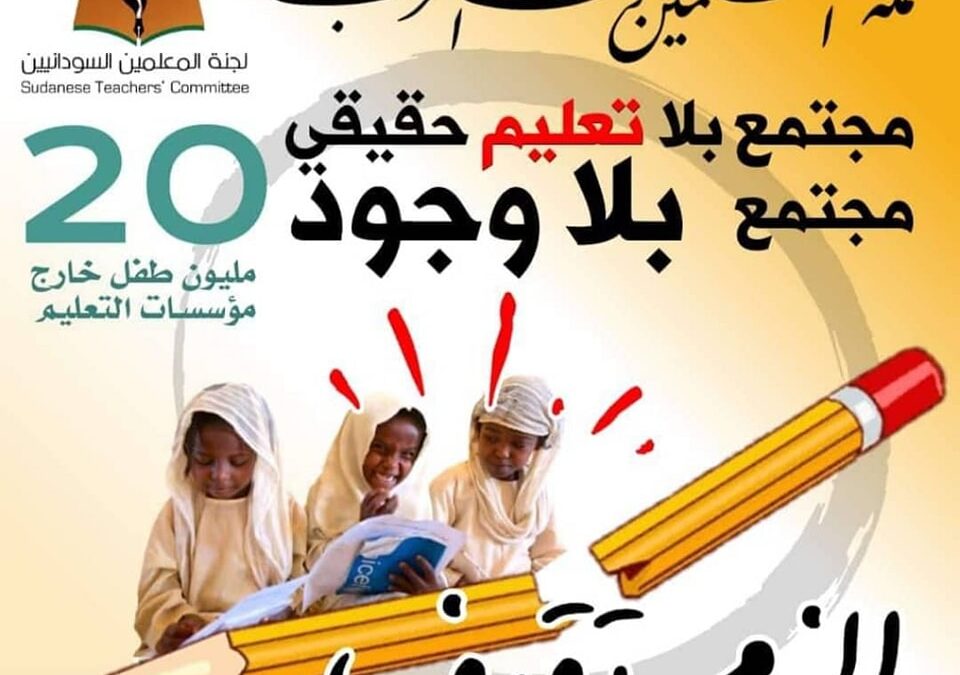
Aug 30, 2024
The future of children—their education, development and eventual livelihoods—is an essential reason for ending the war in Sudan, according to the Teachers’ Campaign to End the War.
The Sudanese Teachers Committee, which organized the peace initiative, is part of the Sudanese Civil and Labor Coalition that includes labor and civil society organizations, and is a member of al Taqadum-Sudanese Civil Front movement.
Under the banner, “Teachers are builders of civilizations and advocates of peace,” the Sudanese Teachers Committee points out that no family is “untouched by the destruction caused by the war,” and notes that teachers are the most capable in leading the movement by rejecting the war, with education as the key to achieving peace.
The war in Sudan, which began April 15, 2023, has resulted in the killing, displacement and starvation of millions of people, as well as the destruction of vital public institutions. Nearly 26 million people, half of Sudan’s population, are facing acute hunger. More than 12 million people have been displaced by fighting between a military government and a paramilitary group.
Some 19 million children are out of school, while teachers have not received wages since the start of the war. The committee is serving the public by providing school—at least 6,000 facilities—in shelters.
Reaching Out for Children’s Education
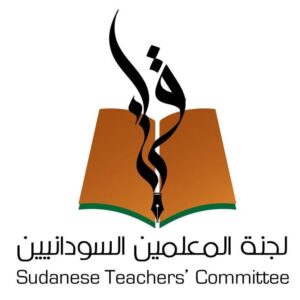 On a Facebook page, which now includes 118,000 followers, the Solidarity Center-backed committee has added dozens of first-person videos by those calling for an end to war, and is campaigning for students’ ability to learn to read and return to school.
On a Facebook page, which now includes 118,000 followers, the Solidarity Center-backed committee has added dozens of first-person videos by those calling for an end to war, and is campaigning for students’ ability to learn to read and return to school.
Committee leaders note that receiving an education is a basic right as stipulated in the International Covenant on Economic, Social and Cultural Rights, a United Nations treaty signed by Sudan.
The committee also has created a series of posters illustrating the destructive actions of war and how children thrive with education and peace.
“Peace is a means to achieve comprehensive economic and social development, and through it societies advance,” the committee says. “There is no renaissance and development in a country suffering from wars, division and conflicts.”
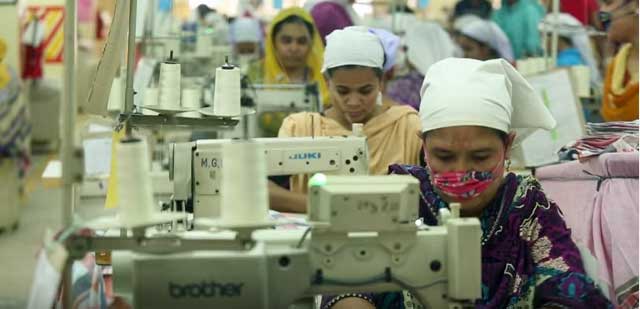
Aug 20, 2024
With the unexpected shift in Bangladesh political leadership, garment workers say they are hopeful but cautious about the effect on their wages, working conditions and fundamental civil rights, such as the freedom to form unions.
“We hope something positive will happen. However, after the fall of the government, some factories … were prevented from opening in some places,” one factory-level union representative* told the Solidarity Center. “It should not happen.”
After weeks of peaceful student protest were met with deadly government suppression, long-term Prime Minister Sheikh Hasina was forced to flee the country on August 4. Students were rallying against a government jobs quota system granting coveted decent work opportunities to family veterans of the 1971 Bangladesh war for independence. More than 600 protestors have been killed.
The economy of Bangladesh, the world’s second-largest garment exporter, depends on garment factories, but producers say customers are concerned about violence and disruption. In 2023, 4 million garment workers contributed 85 percent of Bangladesh’s $55 billion in annual exports.
The recent disruptions, including a government internet shutdown, closed factories, but some garment workers were back to work August 7.
“We only wish our garment sector to thrive,” another worker said. “Our hope is all the factories remain open.”
Lack of Union Freedom Represses Decent Wages, Work
Government repression against workers seeking to form and join unions has prevented garment workers from achieving the living wages and safe working conditions they have sought to achieve, workers say.
With a new government, garment workers seek a crucial change: The ability to freely exert their internationally recognized freedom to form independent unions and bargain collectively for wages and working conditions.
“We want to be able to exercise our trade union rights to the fullest with no pressure from anybody,” says one union leader, who has received threats for efforts to stand up for worker rights.
Although most factories have resumed production, garment workers say their monthly wage still must be increased.
“Many families live on the income of garment workers,” said the union representative.
While many garment workers received wages in July, union leaders tell Solidarity Center that in many other factories, especially those without unions, workers were not paid. In Gazipur, ready-made garments and textile factories demanded their due payment.
Last fall, garment workers who held protests for higher wages were also brutally repressed. The government raised wages to $113 a month, an amount union leaders say does not cover the cost of living, and about half of what workers sought. Multiple labor organizations, including the Industrial Bangladesh Council and Garments Sramik Parishad, said garment workers’ monthly minimum wage must be at least Tk 23,000 a month ($195.81).
Workers said last year’s wage revision did not cover basic needs as “the prices of daily commodities have skyrocketed.” One garment worker who has been on the job for 15 years said, “Usually, our wage is revised every five years. We expect the new government to do that in three years. It will be really beneficial for garment workers.”
* All workers interviewed for this story asked to remain anonymous.

Jul 26, 2024
More than 500 Philippine workers and trade unionists joined a march on July 22nd in Quezon City, demanding that President Ferdinand R. Marcos, Jr. declare support in his State of the Nation Address (SONA) for legislation that would further raise the minimum wage.
The Regional Tripartite Wages and Productivity Board approved a 35 PHP (approximately 0.60 US dollar) daily minimum wage hike for workers in the capital region earlier this month. This falls far short of the 150 PHP (about 3 US dollars) wage hike the National Wage Coalition has persistently called for to support workers’ economic recovery amid high inflation, poor job quality and a lack of new and decent jobs.
The Coalition, representing local workers across various industries and sectors, has remained steadfast in demanding livable wages and are advocating for multiple bills that have been introduced but still await action from the government.
The president has yet to engage in dialogue with Philippine Labor representatives and did not mention wages in his SONA.
Coalition member, Center of United and Progressive Workers (SENTRO), noted in an online statement, “[t]he [national government’s] absence of genuine effort to attain long-term solutions against rising costs and the provision of measly increases that leave workers running in place against inflation…” SENTRO added, “We deserve higher wages not simply because of our labor, but because we are human beings who have every right to live peacefully and decently.”
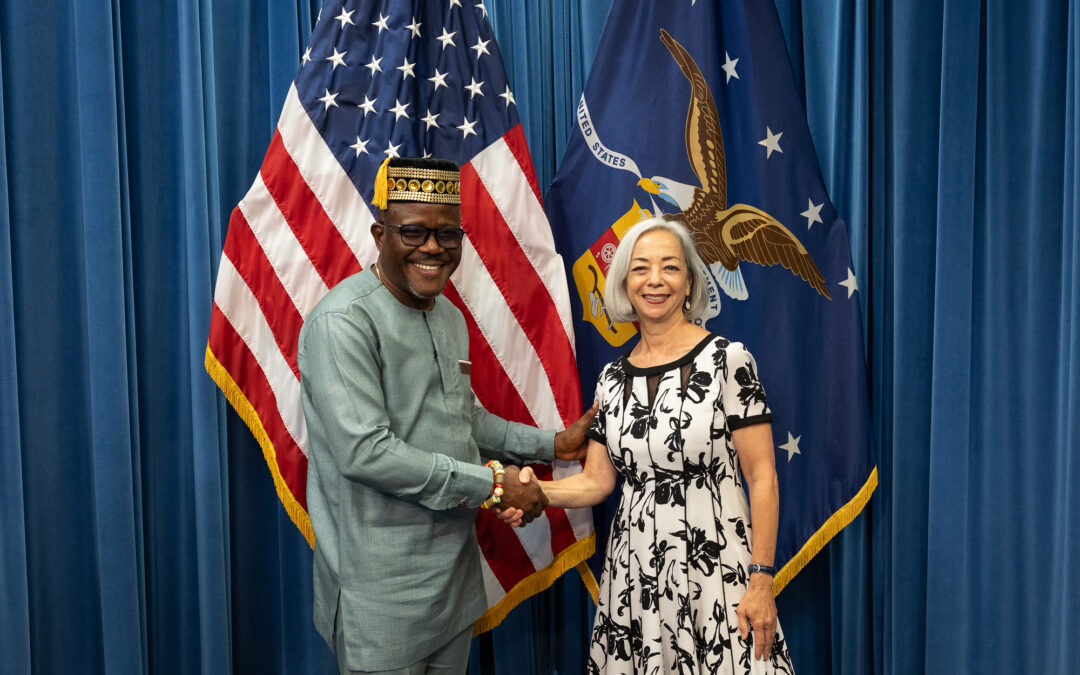
Jul 22, 2024
General Agricultural Workers’ Union of Ghana (GAWU) Deputy General Secretary Andrews Addoquaye Tagoe was recognized last month by the U.S. Department of Labor (USDOL) for his role in advancing child and worker rights and for reducing child labor in Ghana’s agricultural industry.
“Where the union is present, child labor is absent,” Tagoe said about GAWU’s campaign to end child labor on Ghana’s cocoa farms.
Alarmed by increasing child labor in Ghana and Ivory Coast cocoa production, GAWU is addressing child labor in cocoa farming communities by applying a child-labor-reduction model honed in fishing communities on Lake Volta. The program raises awareness and incomes of parents so that kids can stay in school.
Although the cocoa industry’s biggest companies pledged to eradicate the “worst forms” of child labor in their supply chains nearly 20 years ago, up to 2 million children are estimated to be engaged in cocoa production in West Africa—primarily in Ghana and Ivory Coast. The two countries together supply roughly 60 percent of the world’s cocoa beans. As cocoa production in both countries has increased, so has child labor.
The profitable global chocolate market last year was worth $132.65 billion, with three major global chocolate brands together earning almost $4 billion in profits from chocolate sales while a fourth global brand’s confectionery profits totaled $2 billion. The four corporations on average paid out 97 percent of their total net profits to shareholders in 2023, reports Oxfam. Meanwhile, up to 58 percent of cocoa farmers in Côte d’Ivoire and Ghana were living below the World Bank extreme poverty line in 2021 and up to 90 percent did not earn a living income. According to the Child Labor Coalition, of which the Solidarity Center is a member, the cocoa industry must pay a living income while scaling up programs that identify child laborers and ensure that children can go to school.
”Building worker voice at local and national levels for farmers to benefit from higher cocoa prices and the profitable global chocolate industry will help end child labor, says GAWU.
Children in Ghana are subjected to the worst forms of child labor, including in fishing and cocoa production, reported USDOL in 2022. More than half of children living in agricultural households in Ghana are reportedly engaged in child labor, most in at least one form of hazardous child labor.
By organizing and formalizing the agricultural economy in rural areas and working with communities to eliminate child labor, Tagoe has developed and implemented child labor free zones resulting in ‘withdrawal of thousands of children in rural communities from the worst forms of child labor,’ said Thea Lee, USDOL Deputy Secretary for International Affairs at the award ceremony.
“An Africa without child labor is possible,” Tagoe said in his acceptance speech.
Tagoe was co-recipient of the 2024 USDOL’s Iqbal Masih Award for the Elimination of Child Labor with Egyptian civil society organization Wadi El Nil. The award honors its namesake, a Pakistani child sold into slavery at age four to work as a carpet weaver and who, after escaping at age 10, became an outspoken public advocate against child exploitation and died tragically at the age of 12.
Watch a Solidarity Center video about GAWU’s fight against child labor in cocoa production.
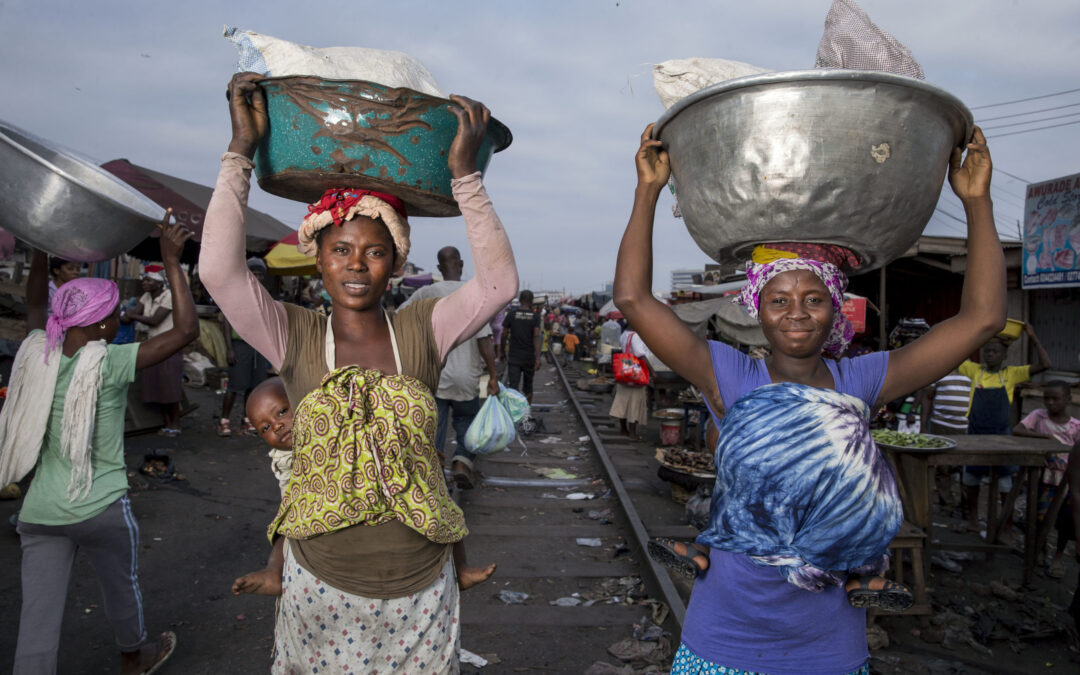
Jun 5, 2024
Through expanded regional and global partnerships, the Organization of Trade Unions of West Africa (OTUWA) is growing its campaign for increased budgetary allocation to health care in the region, said OTUWA Executive Secretary John Odah from Abuja, in a solidarity message to the opening session of the 24th Plenary of the West African Health Sector Unions Network (WAHSUN).
Now in its fourth year, OTUWA’s “Health Care Is a Human Right” advocacy campaign is allying with global union federation Public Services International (PSI), civil society organizations across the region and WAHSUN to better advocate for equal and fair health care access for all who live within the Economic Community of West African States (ECOWAS).
Nearly 83 percent of Africa’s workers are trapped in poorly paid and uncertain informal-sector jobs and lack access to state-provided health care or health insurance—an unfair financial burden on the continent’s most vulnerable individuals. And yet West Africa’s governments are not implementing the 15 percent minimum annual budgetary health allocation to which African heads of state agreed in the landmark 2001 Abuja Declaration. No country in the region achieves this percentage currently.
OTUWA’s campaign, launched in 2020 by national labor federations from five countries, has expanded its reach to health sector unions and national labor centers in eight countries—including the Gambia, Ghana, Ivory Coast, Liberia, Nigeria, Senegal, Sierra Leone and Togo—as well as to civil society organizations such as the International Federation of Women Lawyers (FIDA). The Office of the United Nations High Commissioner for Human Rights with the World Health Organization defines the right to health as “a fundamental part of our human rights and of our understanding of a life in dignity.” The Solidarity Center supports OTUWA in this campaign and on other worker rights initiatives.
“Together we must get public health services out of their chronic state of neglect and underfunding,” Odah told the Solidarity Center, adding that OTUWA’s campaign is adding good governance to its health care demands.
Thus far, the campaign has gathered and released important regional health care worker data and initiated advocacy meetings with national, regional and continent-wide African Union legislators and policymakers, including the Parliament of the Economic Community of West African States (ECOWAS). The campaign most recently saw success in Nigeria earlier this year, where the federal government announced a disbursement of almost $70 million to bolster the country’s health infrastructure.
“Only a transparent, democratic system can secure, fairly allocate and responsibly spend increased health care funds,” said Odah.
OTUWA represents national trade union centers in the 15 West African countries comprising ECOWAS. PSI encompasses more than 700 trade unions that represent 30 million workers in 154 countries.
Watch a video about the campaign.
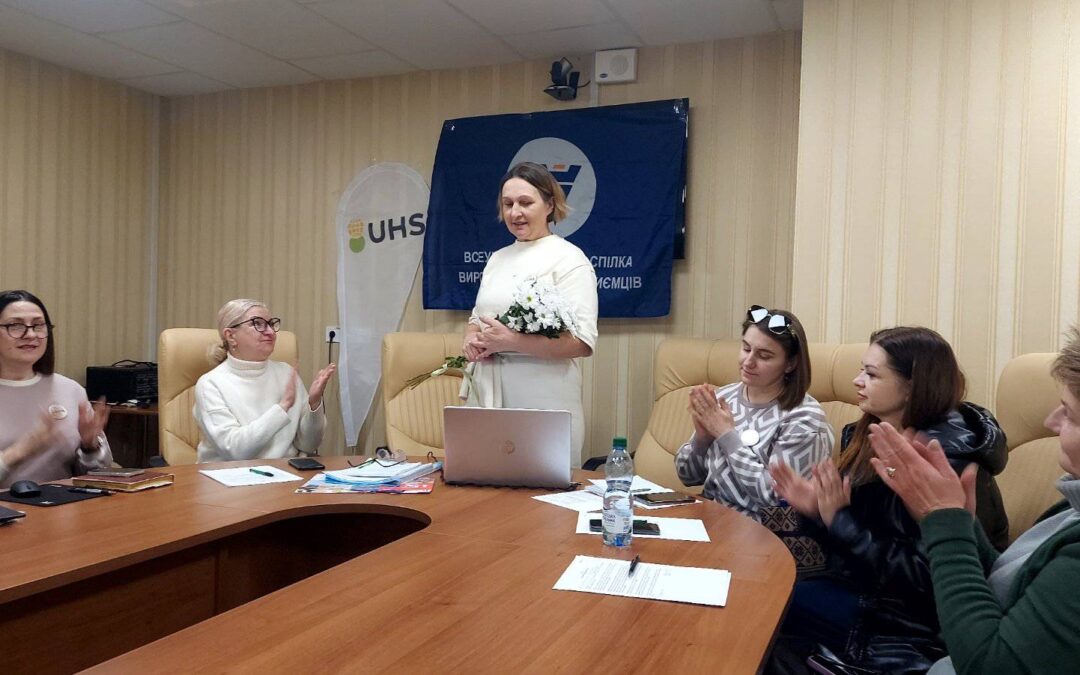
Apr 17, 2024
In a first for Ukraine, in-home childcare workers including nannies and babysitters organized and then elected domestic worker Tetiana Lauhina to head their new labor organization, Union of Home Staff (UHS).
“[My colleagues] are amazingly hard-working and well-educated. I want all of them to be recognized as workers and officially protected,” says Lauhina in a video interview.
The Union of Home Staff (UHS), formed by 17 domestic worker activists, will vigorously advocate with Ukraine’s lawmakers and government to ensure protections for domestic workers and formalization as workers under the country’s labor law.
As an outgrowth of nongovernmental organization Union of Home Staff (UHS), the new union will continue to use its allied organization’s name and acronym, UHS, expanding its services as an information hub and community center, including for its 1,800 Facebook members.
Ukraine’s first nationwide survey of domestic workers last year found that working without contracts and formal recognition had left most survey respondents victims of low pay, wage theft, confusion about employment status, exclusion from the country’s pension system and minimal capacity to exercise their right to freedom of association. And, without legal formalization as workers, Ukraine’s domestic workers lack access to care rights and services for themselves and their families—including maternity and child benefits, long-term care services and disability compensation for workers who die or are injured in their employers’ homes.
“[The domestic worker] is not secure and she is nobody for the state,” says Lauhina.
Because women account for three-quarters of the 75.6 million domestic workers globally, domestic worker rights are key to the achievement of equality. On International Women’s Day this year, the ILO issued a new policy brief urging governments and employers’ organizations to ensure that domestic workers have access to labor rights and social protections.
Nongovernmental organization UHS was formed in 2019 with support from Ukraine labor rights nongovernmental organization Labor Initiatives (LI) and the Solidarity Center to raise awareness about labor rights challenges for Ukraine’s care economy workers and support the country’s legislative efforts to formalize domestic work.

 On a Facebook page, which now includes 118,000 followers, the Solidarity Center-backed committee has added dozens of first-person videos by those calling for an end to war, and is campaigning for students’ ability to learn to read and return to school.
On a Facebook page, which now includes 118,000 followers, the Solidarity Center-backed committee has added dozens of first-person videos by those calling for an end to war, and is campaigning for students’ ability to learn to read and return to school.




